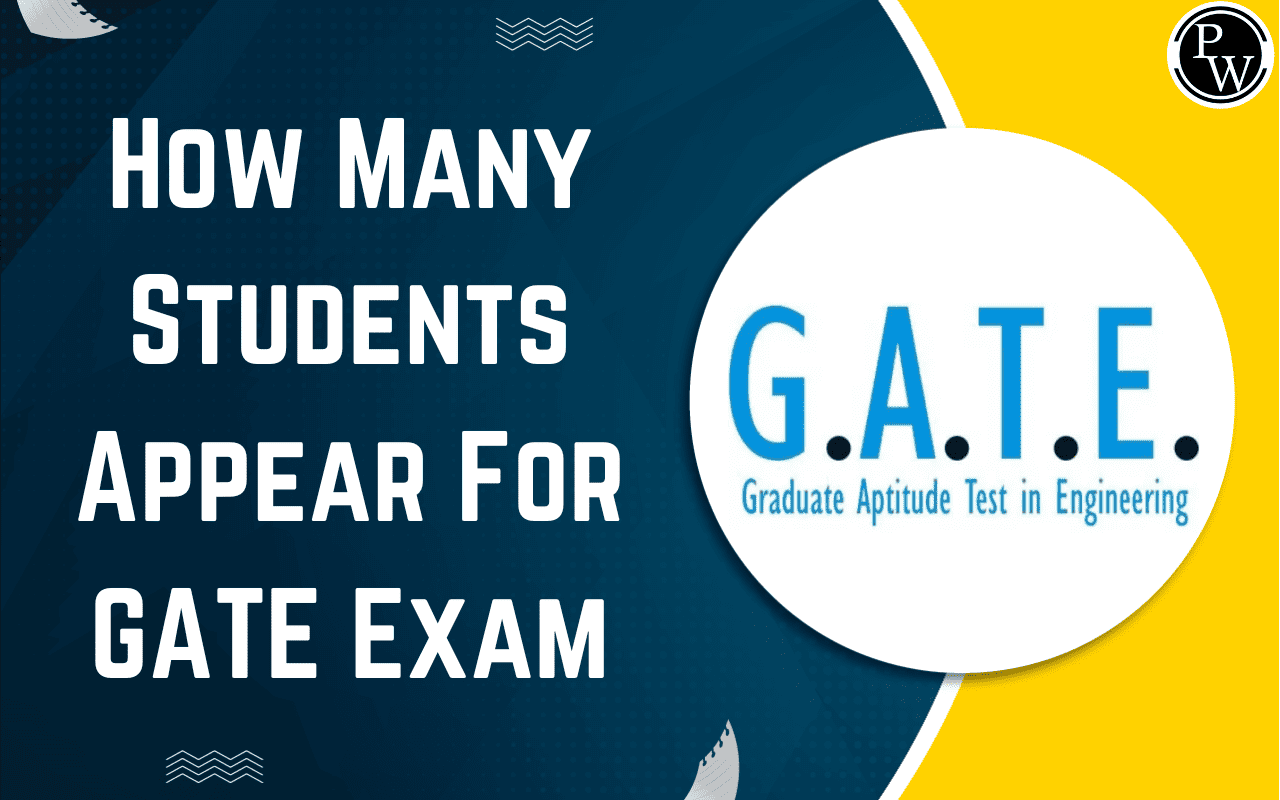
How to Join ISRO After Graduation?- The Indian Space Research Organisation, or ISRO, is one of the world's largest space organisations, noted for its innovative technology and cost-effective projects. It was founded on August 15, 1969, with its headquarters in Bengaluru. ISRO has successfully launched a lot of missions by putting in its utmost effort. We've covered all you need to know about “ How to Join ISRO After Graduation?”.
The Indian space agency is made up of various organisations and sectors. ISRO has successfully launched a lot of missions by putting in its utmost effort. Let's review the crucial information for each stage of applying for a job at ISRO as well as the educational requirements to become a member of this prestigious space organisation.
How to Join ISRO After Graduation?
ISRO is an acronym that stands for (Indian Space Research Organisation). Applicants can apply for a position in the ISRO entrance examination after finishing their engineering degree. You must take an ISRO-sponsored entrance exam.
IITs and NITs hire engineers through campus recruiting every year. Acceptance into the Indian Institute of Space Science and Technology (IIST) may be the fastest route to employment as a scientist or engineer. Alternatively, after obtaining your engineering degree in the relevant discipline, you can take the ICRB test to become an ISRO scientist.
Also Read: ISRO Full Form
How to Join ISRO After Graduation? Eligibility Criteria
First and foremost, you must have studied a scientific, maths or physics course in high school and be conversant with the fundamentals of each (a 75% or above is preferred). Candidates can apply for jobs at ISRO in a variety of methods.
To join ISRO, you must meet the following requirements:
- Every year, IISc, IITs, and NITs generate high-caliber graduates who are directly recruited by ISRO. B.Tech students in Engineering Physics, Electronics and Communications, Aerospace Engineering, and Mechanical Engineering are more likely to consider such positions.
- Getting a seat at the Indian Institute of Space Technology (IIST) is the fastest way to join the ISRO. ISRO directly invites IIST students as scientists each year based on their needs. However, in order to be considered for ISRO, you must maintain a CGPA of 7.5.
- ISRO conducts the ICRB (ISRO Centralised Recruitment Board test) test once a year. You can take this test after finishing a BE, BTech, BSc(Engg), or a Diploma + BE/BTech (lateral entrance). However, only computer, mechanical, and electrical students are qualified to take the exam.
-
The candidate must have a B.E/B.Tech degree with a minimum of 65% from a recognised university. Below is the list of courses -
- B.Tech in Aerospace Engineering
- B.Tech in Avionics Engineering
- B.Tech+M.S./M.Tech
- Bachelor’s in Physics (BSc Physics)
- Masters in Physics (MSc Physics)
- PhD in Physics
- B.Tech. in Engineering Physics + M.S. in Solid State Physics, Astronomy, Earth System Science/ M.Tech. in Optical Engineering
- M.Tech in Electronics, Electrical, Mechanical and Computer Science
- PhD in Aerospace Engineering
- Masters in Astronomy (MSc Astronomy)
- PhD in Astronomy
- B.Tech + M.Tech in Engineering (Mechanical, Electrical, CS {Computer Science})
- You should be between the ages of 21 and 35.
- The aspirant must be of Indian nationality.
How to Join ISRO After Graduation?- Job Profiles
ISRO accepts applications for a variety of positions, including:
- Scientists
- Engineers
- Technical Assistants
- Junior Research Fellowship
Suggested – ISRO Chairman List
How to Join ISRO After Graduation?- Selection Procedure
After finishing engineering, you can join the Indian Space Research Organisation (ISRO). ISRO hires engineers from a variety of disciplines to work on various aspects of space research and technology development. To join ISRO, you must first achieve certain eligibility requirements and then go through a screening procedure. The following are the general steps to join ISRO:
Eligibility: You must have a bachelor's degree in a relevant engineering subject, such as aerospace engineering, electronics engineering, mechanical engineering, or computer science engineering. Specific qualifying criteria for individual roles may differ, therefore consult the official ISRO website or announcements for the most up-to-date information.
Entrance Exam: ISRO recruits people for various roles through recruiting tests such as the Indian Space Research Organisation Scientist/Engineer (ISRO SC). To go to the next round, you must pass the admission exam.
Application: When ISRO publishes recruiting notices, you can apply online via the ISRO website. Fill out the application form, pay the needed cost, and send the required documents according to the instructions.
Written Test/Interview: Based on the nature of the position, ISRO may conduct a written test or shortlist candidates for an interview after assessing the applications. The written exam will often include technical questions about your engineering subject as well as general aptitude questions. If you pass the written test, you will be invited to an interview.
Interview and Selection: The interview will be used to evaluate your technical knowledge, problem-solving abilities, and appropriateness for the role. You may be given a job with ISRO if you perform well in the interview and satisfy the selection requirements.
It is critical to monitor the official ISRO website or job news for recruitment alerts, qualifying requirements, and application procedures, as they may change over time.
How to Join ISRO After Graduation? - Job Opportunities
You may join ISRO by taking one of the following paths:
Indian Engineering Services (IES): You can take the Union Public Service Commission's (UPSC) Engineering Services Examination (ESE). Passing this test may lead to employment chances in a variety of government organisations, including ISRO.
Scientist/Engineer Recruitment: ISRO has its process for hiring scientists and engineers. They post job announcements for various engineering specialties, and interested applicants may apply online and go through a screening process that may involve a written exam and an interview.
ISRO also provides research grants to engineering graduates who aspire to do research in space science and technology. These fellowships are normally available through the Indian Space Research Organisation Research (ISRO-R) programme and allow for research and development initiatives.
Internships and Training Programmes: The ISRO entrance examination after 10th grade provides engineering students and recent graduates with internships and training programmes. These programmes provide hands-on experience and exposure to numerous facets of space science and technology, which might help you land a job with ISRO in the future.
With multiple existing and planned missions, partnerships, and technical developments, the Indian Space Research Organisation (ISRO) has a bright future. Here are some major factors defining ISRO's potential scope:
ISRO's post-tenth-grade entrance test is actively engaged on space exploration projects. The Chandrayaan and Mars Orbiter Missions (MOM) were major accomplishments, and future missions might involve lunar landings, Mars exploration, and deep space exploration. ISRO's future space exploration endeavours seek to improve scientific understanding, test new technologies, and investigate the feasibility of human spaceflight.
Satellite Launches and Communication: The Indian Space Research Organisation (ISRO) will continue to launch satellites for communication, remote sensing, weather monitoring, and navigation. The Geosynchronous Satellite Launch Vehicle (GSLV) launch and the ongoing development of the Small Satellite Launch Vehicle (SSLV) would improve India's satellite launch capability.
ISRO is actively working on its ambitious Gaganyaan mission, which intends to launch people into space. The human spaceflight programme will not only help to improve science, but it will also inspire and excite the next generation of scientists and engineers.
ISRO has plans for future interplanetary trips to investigate other celestial entities in our solar system. Missions to Venus, asteroids, and other planets or moons may be included, allowing for in-depth study and research.
ISRO is committed to creating cutting-edge technologies and ideas for space exploration. Advances in rocket technology, satellite design, remote sensing, navigation systems, and communication technologies are examples of this. ISRO's efforts in these areas have the potential to help scientific research, national security, disaster management, and society.
ISRO regularly engages with worldwide space agencies and organisations in order to share information, resources, and expertise. Collaborations have the potential to result in cooperative missions, technological transfers, and improvements in space study and exploration.
Agriculture, Disaster Management, and communications Applications: ISRO's satellite-based applications play an important role in agriculture, disaster management, communications, and other social demands. The organisation will continue to create and improve these apps in order to handle diverse difficulties and help numerous industries.
ISRO is devoted to skilling and capacity-building activities to cultivate people in the field of space technology. To inspire and educate students, scholars, and professionals, the organisation runs outreach programmes, training courses, and scholarly partnerships.
ISRO's future scope is bright in general, with endeavours in space exploration, satellite technology, human spaceflight, technological development, and social applications. The organization's pursuit of scientific advances, innovation, and international partnerships will benefit India's space efforts as well as the global space community.
Also Read:
How to Join ISRO After 12th?
If you want to join ISRO as a scientist after graduating from high school, you need to apply to the Indian Institute of Space Science and Technology (IIST), one of India's premier colleges. This is one of the best ways to work as a scientist with ISRO.
- ISRO is available to those individuals with a first-class degree in BE/BTech with a minimum aggregate of 65% or CGPA of 6.84.
- JEE Advanced, Kishore Vaigyanik Protsahan Yojana, or State and Central Board-based Aptitude Test given by IISER are three exams you may take to join ISRO after Class 12.
Suggested – STRATEGIC BLUEPRINT FOR ACHIEVING SUCCESS IN ISRO 2023 | SYLLABUS, STUDY MATERIALS, EXAM PATTERN
Best Space Science Colleges in India
We've also compiled a list of the best space science colleges and institutions in India to assist you pick where to study to join ISRO in the future.
- Indian Institute of Science, Bangalore
- Indian Institute of Technology, Bombay
- Indian Institute of Space Science and Technology, Thiruvananthapuram
- Indian Institute of Technology, Kharagpur
- Indian Institute of Technology, Kanpur
- Indian Institute of Astrophysics, Bangalore
- Indian Institute of Technology, Madras
- National Centre for Radio Astronomy, Pune
- Inter-University Centre for Astronomy and Astrophysics, Pune
- Aryabhatta Research Institute of Observational Sciences, Nainital
- Indian Institute of Space Science and Technology, Kerala
- Physical Research Laboratory, Ahmedabad
- Centre for Earth and Space Sciences, (University of Hyderabad)
- Raman Research Institute, Bangalore
- Radio Astronomy Center, Ooty
- Hindustan Institute of Technology and Science
- Manipal Institute of Technology
- International Institute for Aerospace Engineering and Management, Jain University Bangalore
- Birla Institute of Technology, Mesra
- Madras Institute of Technology, Chennai
Also Check: ISRO Recruitment 2023
How to Join ISRO After Graduation? FAQs
What are the requirements for joining ISRO?
How to join ISRO after graduation?
Can a 12th pass candidate apply for ISRO?
Can we join ISRO through the GATE Exam?










